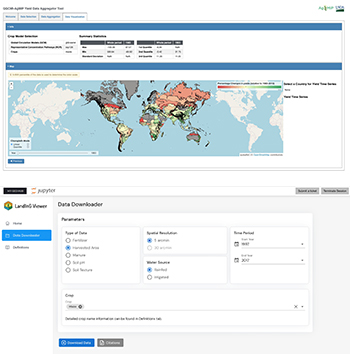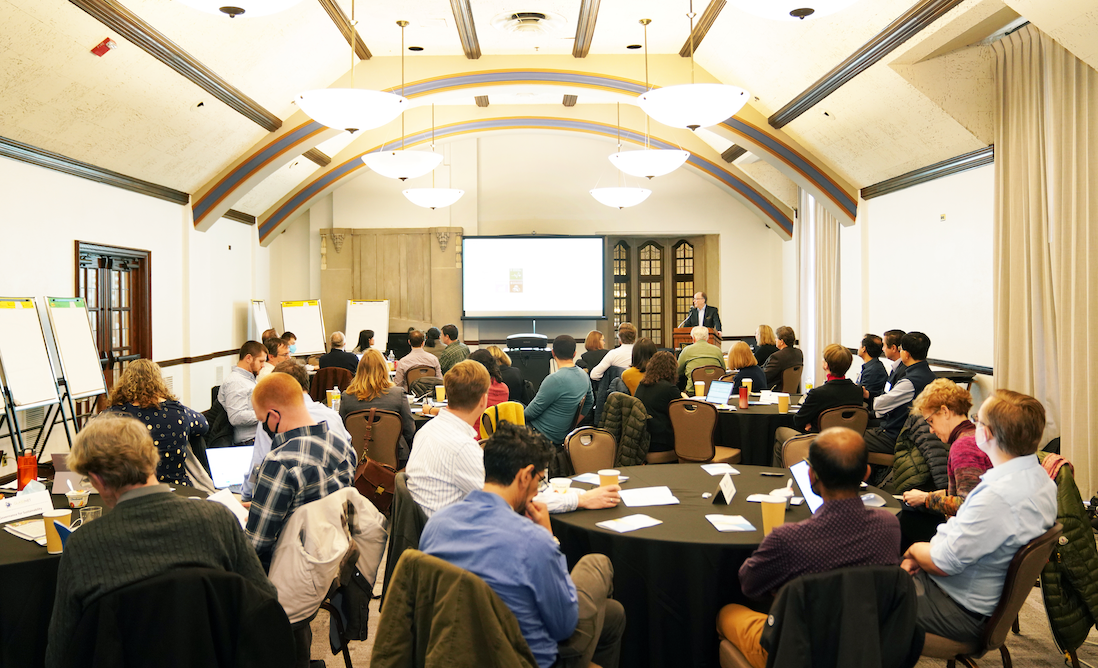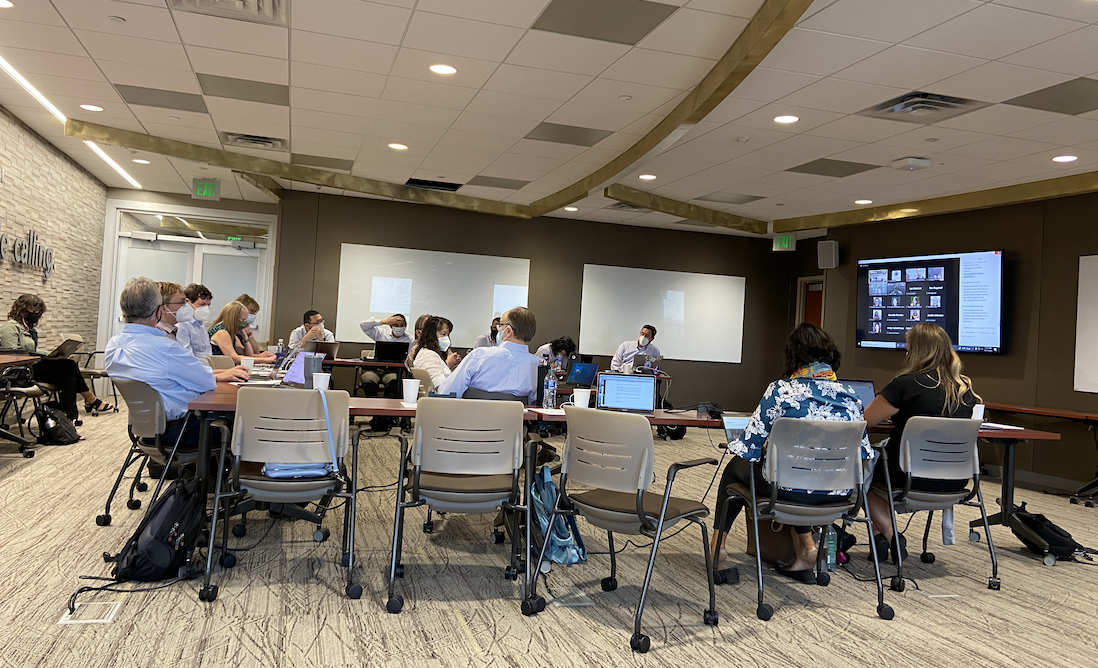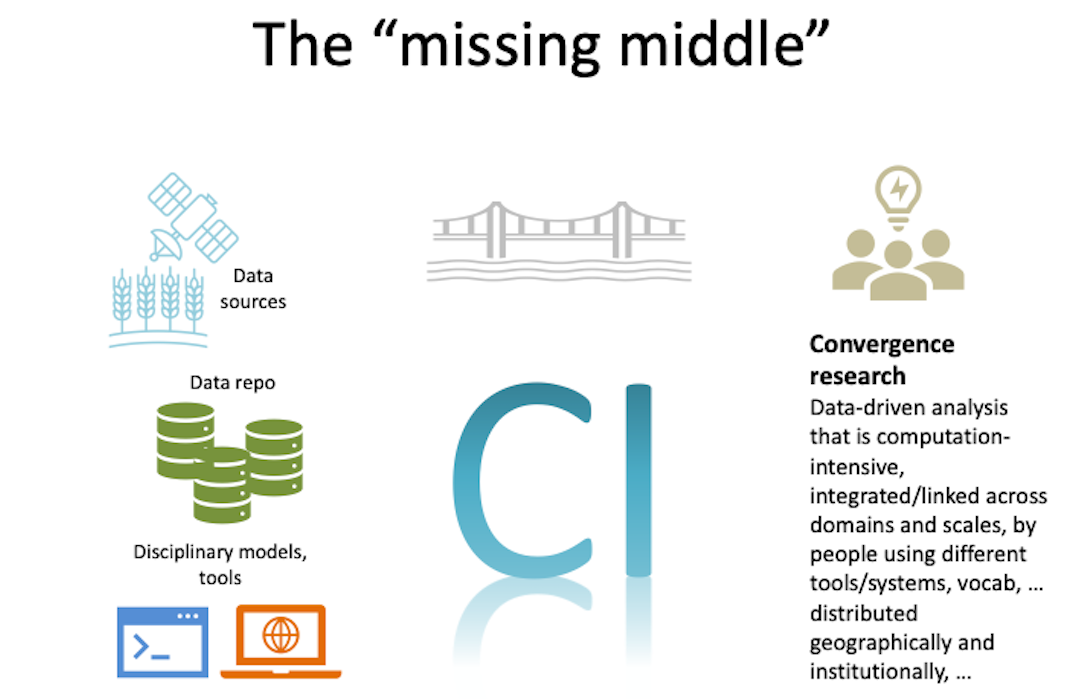GLASSNET’s impact on key stakeholders will make a difference in achieving the SDGs. Our network has the potential to provide decision makers from a wide-array of areas with the data needed to properly assess actions that will affect the environment, the economy and local communities.
Learn more about GLASSNETFeatured Researcher

Dr. Aline Mosnier
Aline Mosnier is the Scientific Director for the FABLE Consortium. She works with country teams to develop rigorous quantitative national pathways towards sustainable land use and food systems by 2050.
Prior to joining SDSN, Aline worked at the International Institute for Applied Systems Analysis (IIASA) where she contributed to the development of the global partial equilibrium model GLOBIOM. In particular, her work focused on international trade in agricultural products, indirect impacts of biofuel policies, climate change impacts on agriculture, and deforestation and forest degradation in the tropics. With teams from local research institutes, she has worked on the co-development of regional versions of GLOBIOM in the Congo Basin, Brazil and Indonesia. Finally, she has developed the FABLE calculator, a simplified country-Excel-based accounting tool on the food and land system.
Aline holds a PhD in Agricultural and Environment Economics from the University of Natural Resources and Life Sciences of Vienna and a master's in development economics from CERDI-Université d'Auvergne of Clermont-Ferrand.
Aline recently spoke at our GLASSNET Early Career Workshop: Navigating Transdisciplinary and Transnational Research in the Food-Land-Water-Energy Nexus in March 2024. You can watch her talk here.
Featured Research

Recent Developments and Challenges in Projecting the Impact of Crop Productivity Growth on Biodiversity Considering Market-Mediated Effects
Abhishek Chaudhary and Thomas Hertel
The effect of an increase in crop productivity (output per unit of inputs) on biodiversity is hitherto poorly understood. This is because increased productivity of a crop in particular regions leads to increased profit that can encourage expansion of its cultivated area causing land use change and ultimately biodiversity loss, a phenomenon also known as “Jevons paradox” or the “rebound effect”. Modeling such consequences in an interconnected and globalized world considering such rebound effects is challenging. Here, we discuss the use of computable general equilibrium (CGE) and other economic models in combination with ecological models to project consequences of crop productivity improvements for biodiversity globally. While these economic models have the advantage of taking into account market-mediated responses, resource constraints, endogenous price responses, and dynamic bilateral patterns of trade, there remain a number of important research and data gaps in these models which must be addressed to improve their performance in assessment of the link between local crop productivity changes and global biodiversity. To this end, we call for breaking the silos and building interdisciplinary networks across the globe to facilitate data sharing and knowledge exchange in order to improve global-to-local-to-global analysis of land, biodiversity, and ecosystem sustainability.
Check out all publicationsFeatured Data and Tools

New GLASSNET tools on MyGeoHub advance international, interdisciplinary research
Two new climate, land-use, and agricultural data tools developed by GLASSNET team members have recently been added to the online platform MyGeoHub (mygeohub.org), allowing researchers across domains to easily access the data they need to assess progress towards meeting the United Nations Sustainable Development Goals (SDGs).
GLASSNET, a five-year, NSF-funded project, is a global collaboration—a network of networks—aimed at understanding global drivers of local sustainability challenges, as well as the regional, national, and global consequences of local responses to these stresses. The intent of the GLASSNET network is to provide decision-makers from a wide array of areas with the data and models needed to properly assess actions that will affect the environment, the economy, and local communities. Although the different teams within the GLASSNET group hail from different fields, they all recognize that we live on a changing planet with limited water and land resources and that achieving global SDGs is of the utmost importance. They also recognize a major impediment to reaching these goals is the traditional isolation of scientific domains and the difficulty researchers have in communicating across different fields.
Check out all modeling tools and data


